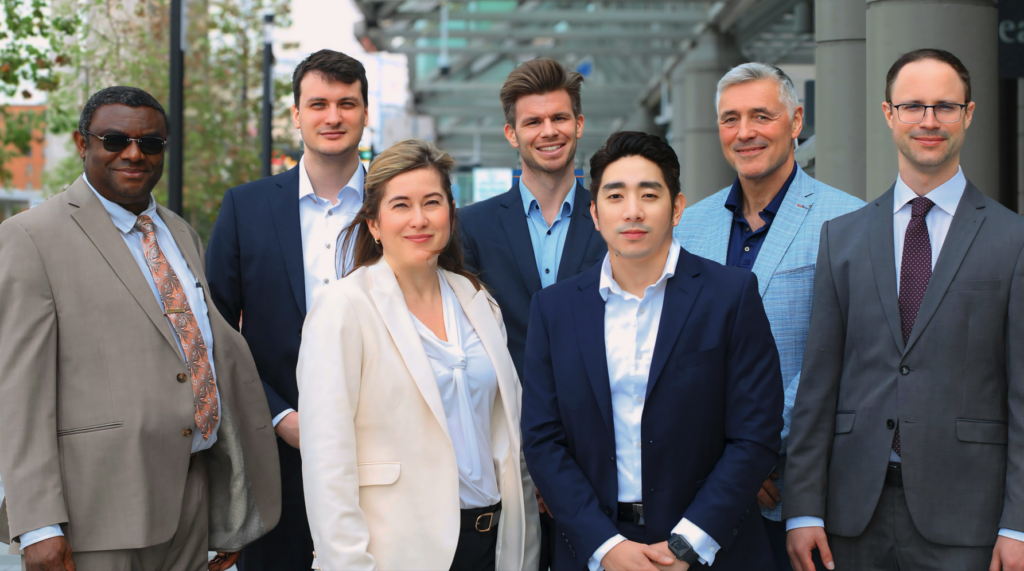At the General Session of the International Association for Dental Research (IADR), which took place from March 13 to 16, 2024, in New Orleans, LA, USA, Dr. Wolff’s research provided several important scientific insights for oral care, particularly regarding the effects of hydroxyapatite (HAP). The scientific symposium focusing on the biomimetic active ingredient and several oral and poster presentations gained significant attention.

Prof. Dr. Bennett T. Amaechi, Dr. Pascal Fandrich, Prof. Dr. Elżbieta Paszynska, Dr. Frederic Meyer, Carlo Cortez, Prof. Dr. Bernhard Ganss and Dr. Joachim Enax at the General Session of the IADR 2024 (from left).
The scientific symposium “Emerging Technologies for Caries Management: The Case for Hydroxyapatite” was a particular highlight, with the internationally renowned cariologist Prof. Dr. Bennett T. Amaechi (Department of Comprehensive Dentistry, University of Texas Health, San Antonio, USA) holding the scientific chair. The session offered an in-depth look at the physicochemical properties of HAP, presented by Dr. Joachim Enax (Senior Scientist Oral Care, Dr. Wolff Research), and highlighted the biomimetic mode of action, the ability to remineralize even deeper layers of enamel caries and teeth affected by Molar Incisor Hypomineralization (MIH), as well as the protective effect against acid attacks through the release of calcium ions. Prof. Dr. Elżbieta Paszynska (Department of Integrated Dentistry, Poznan University of Medical Sciences, Poland) presented various clinical studies confirming the caries-preventive properties of HAP. Her remarks sparked great interest and led to a lively discussion about the benefits of HAP as a safe and effective alternative to fluoride-containing toothpastes. To conclude the symposium, Prof. Dr. Bennett T. Amaechi discussed further modes of action of HAP in caries and other dental defects based on various in situ studies.
Presentation of the Latest Findings on HAP
Dr. Frederic Meyer presented data in a lecture showing that HAP toothpaste is significantly more effective in remineralizing teeth with Molar Incisor Hypomineralization (MIH, or chalky teeth) than an adult toothpaste with fluoride.
The results point out the potential of HAP to help patients suffering from chalky teeth.
Furthermore, Dr. Joachim Enax and Dr. Pascal Fandrich presented research findings on the properties of various calcium phosphates, especially HAP, and their application in dental care. The comprehensive examination of various calcium phosphates confirms HAP as the best-studied active ingredient, whose effectiveness has been demonstrated in numerous studies for different applications.
Growing Importance of HAP in Dentistry
The presentations and discussions at IADR 2024 clearly reflected the increasing international relevance of HAP in dental research. It was once again evident that alternative active ingredients are needed for caries prevention. The intense scientific discussions and the high interest of the scientific community confirm that HAP is an effective and safe active ingredient in oral care, which is already being used in products and benefiting patients.
Research results, studies, and papers from the past 40 years on the active ingredient hydroxyapatite can be found in our study database.
The study results are accessible without registration.












